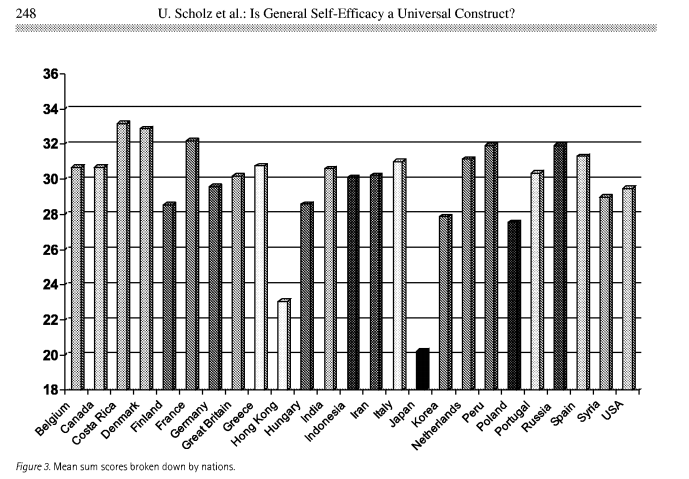Your Feedback
- Uncertain about ability80%Confident in skills
Interpretation
Your score is in the top third of those in the norm group. Based on your responses to the questions, it appears that you see yourself as being highly capable of dealing with a range of situations and of achieving the goals that you and others set for you. This self-confidence in achieving your personal and work goals will help you achieve career success, in whichever area you choose. You can maintain and reinforce your self-efficacy by engaging in the behaviours outlined below.
How can you improve your self-efficacy?
Everyone is different, and the key to improving your self-efficacy is to experiment with a range of techniques that are likely to work well for you as part of your own personal strategy. Here are some suggestions of exercises that you could try:
- Know your strengths and remember them in times of adversity. Being aware of your strengths will help you deal more effectively with challenging situations, as you will remember the things that make you successful. As strengths come so naturally to us, it isn’t always easy to see and remember them in ourselves. Post your list of strengths onto your desk or somewhere in your home where you can often see and remember them. In times of stress, you will be able to draw upon your strengths more consciously to become more confident and resilient and overcome challenges.
- Develop a “circle of support.” A supportive network of close family members, friends or others are important. Accepting help and support from those who care about you and will listen to you will strengthen resilience. Being active in civic groups or other local groups provides social support and can help with reclaiming hope. Assisting others in their time of need can also benefit the helper.
- Accept that change is a part of living. You can't change the fact that highly stressful events happen, but you can change how you interpret and respond to these events and remember, that even bad times pass. Try looking beyond the present to how future circumstances may be a little better. Note any subtle ways in which you might already feel somewhat better as you deal with difficult situations. Certain goals may no longer be attainable as a result of adverse situations. Accepting circumstances that cannot be changed can help you focus on circumstances that you can alter.
- Move toward your goals. Develop some realistic goals. Do something regularly — even if it seems like a small accomplishment — that enables you to move toward your goals. Instead of focusing on tasks that seem unachievable, ask yourself, "What's one thing I know I can accomplish today that helps me move in the direction I want to go?"
- Take clear and decisive actions. Act on adverse situations as much as you can. Tackle challenges head on, taking small and big decisive actions, rather than detaching completely from problems and stresses and wishing they would just go away.
- Look for opportunities for self-discovery. People often learn something about themselves and may find that they have grown in some respect as a result of their struggle with loss. Many people who have experienced tragedies and hardship have reported better relationships and a greater sense of strength even while feeling vulnerable, increased sense of self-worth, a more developed spirituality and heightened appreciation for life.
- Maintain a hopeful outlook. An optimistic outlook enables you to expect that good things will happen in your life. Try visualizing what you want, rather than worrying about what you fear. Imagine, what you will think and say about this situation ten years from now on to change your perspective. Remember situations where you managed to pull out successfully from a difficult situation. What can you take and apply now?
- Take care of yourself. Pay attention to your own needs and feelings. Engage in activities that you enjoy and find relaxing. Exercise regularly. Taking care of yourself helps to keep your mind and body primed to deal with situations that require resilience.
The norm used to calculate your results is taken from Scholz et al. Is General Self-Efficacy a Universal Construct? European Journal of Psychological Assessment (2002), 18, pp.242-251 https://doi.org/10.1027//1015-5759.18.3.242.
The authors administered the General Self-Efficacy Scale to 19,120 individuals in 25 countries and the international norm has been used here for the purpose of inclusivity. It should be noted however that there were significant differences between scores in different nations, as demonstrated by the graph below.
